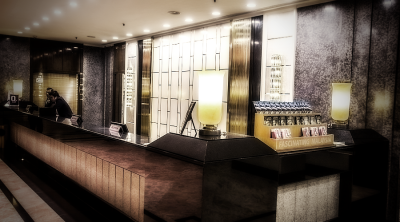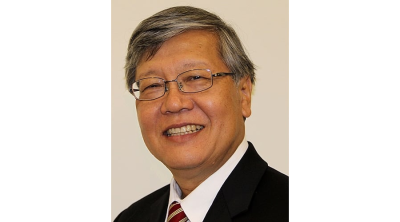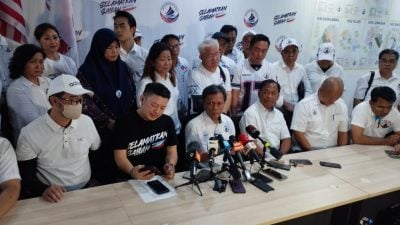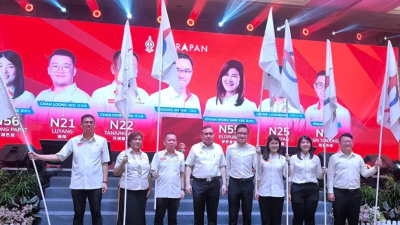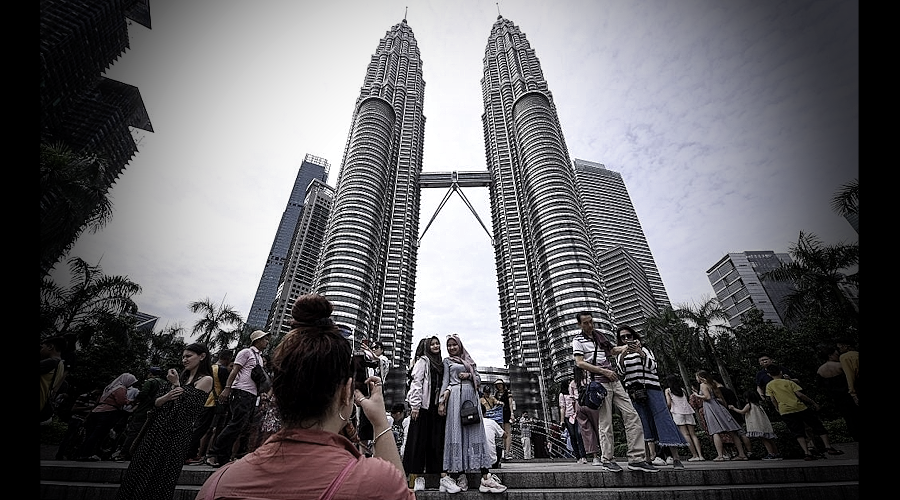
The visa-free policy for Chinese nationals will be extended to five years and the number of days permitted is also increased from 30 days to 90 days.
The extension was announced by Home Minister Datuk Seri Saifuddin Nasution Ismail.
This is one of the memorandums of understanding signed during Chinese President Xi Jinping’s visit to Malaysia.
In 2023, Prime Minister Datuk Seri Anwar Ibrahim announced the relaxation of visa requirements for Chinese nationals, with Saifuddin stating that Malaysia treated it as a one-year trial period.
The visa-free policy has achieved impressive results in boosting Chinese tourist arrivals and strengthening mutual interactions and visits among people of both countries.
As a result, the government decided to extend the policy and increase the length of stay.
During the implementation of the 30-day visa-free period from December 2023 to December 2024, a total of 4,145,535 tourists from China visited Malaysia.
This shows that offering visa-free entry to countries with strong potential can effectively promote foreign tourist arrivals and drive the development of Malaysia’s tourism industry.
Besides boosting tourism, the policy brings along economic benefits to other sectors especially the hotel and retail industries experiencing the spillover effects.
Tourism industry players noted that Chinese travelers on leisure trips are used to visa-free travels. For business delegations, incentive tours and international conference participants, they often plan their trips few years in advance.
The five-year visa-free policy offers them greater convenience and confidence to include Malaysia in their future plans.
In addition to traditional tourist packages, innovative tours focusing on culinary, cultural heritage and eco-tourism in Malaysia are getting more popular among foreign visitors.
With the extension of visa-free stays, the tourism sector can develop more attractive packages, generating economic opportunities for related industries.
Malaysia Inbound Tourism Association (MITA) president Mint Leong said the policy also helps stimulate property sales.
Even without participating in the Malaysia My Second Home (MM2H) program, Chinese tourists can still purchase property as vacation homes and choose to stay in Malaysia for short periods throughout the year.
The extension of visa-free policy does not only facilitate tourism and business exchanges but also paves way for deeper level of exchanges in cultural and education between Malaysia and China.
Students, scholars, researchers, and cultural professionals are able to participate in academic and cultural exchange programs in a very convenient way, promoting knowledge sharing and exchanging ideas.
This will further deepen mutual understanding and friendship between the people of two countries, laying a strong foundation for closer ties.
While the extended stay and visa-free policy ease tourism, business travel, and cultural exchanges, some small and medium enterprises (SMEs) express concerns amid the on-going US-China trade war.
Malaysia Retail Chain Association (MRCA) deputy president Datuk Liew Bin expressed worries about potential abuse of the policy.
He is worried that some may exploit visa-free access to sell products in Malaysia without registering companies.
With China facing trade restrictions imposed by the US, a large number of Chinese products are now seeking alternative markets.
The friendly policy implemented by Malaysia poses risks of abuse.
Liew’s concerns are not unfounded. Thailand, which also offers visa-free entry to foreign travelers, has seen increasing abuses of the system.
Thai Prime Minister Paetongtarn Shinawatra expressed similar concerns, noting a rise in visa overstays, unauthorized employment and other illegal activities linked to long-term stays.
Paetongtarn has instructed the foreign ministry, interior ministry, and ministry of tourism and sports to review the impact of the policy on national security, tourism management, and labor regulation.
Officials have been asked to study potential policy adjustments, including amending the duration for maximum stay, to strike a balance between tourism growth and legal compliance.
This move reflects the growing pressure on the Thai government to plug loopholes in immigration control while maintaining its attraction as a tourist destination.
The Tourism Council of Thailand has pointed out that legal loopholes have enabled illegal business activities, leading to chaos and economic instability.
Some visitors overstay and operate unauthorized businesses, competing with the locals in hotels and accommodation.
The situation in Thailand echoes Liew’s concerns and serves as a warning to us.
Of course, we do not deny the positive aspects of the 90-day visa-free policy. However, the concerns expressed by SMEs deserve serious attention from the government.
Only by ensuring that the tourism boom does not harm the livelihoods of local SMEs through visa misuse can the government truly strike a balance between opening up and controls.
The government should instruct the Home Ministry to form a joint task force, putting resources and authorities from various departments together.
This team should strengthen immigration control procedures, tighten scrutiny and improve information-sharing efficiency to prevent visa abuse and infiltration by unlawful individuals.
Overall, industry stakeholders are positive toward the 90-day visa-free policy, and see it as an opportunity for business expansion and cross-border exchanges.
While enjoying the ease of visa-free travels, all parties are expected to comply with the laws and regulations in Malaysia.
Together, we must maintain order in immigration processes and support the progressive development of Malaysia-China relations in the long run.
ADVERTISEMENT
ADVERTISEMENT









